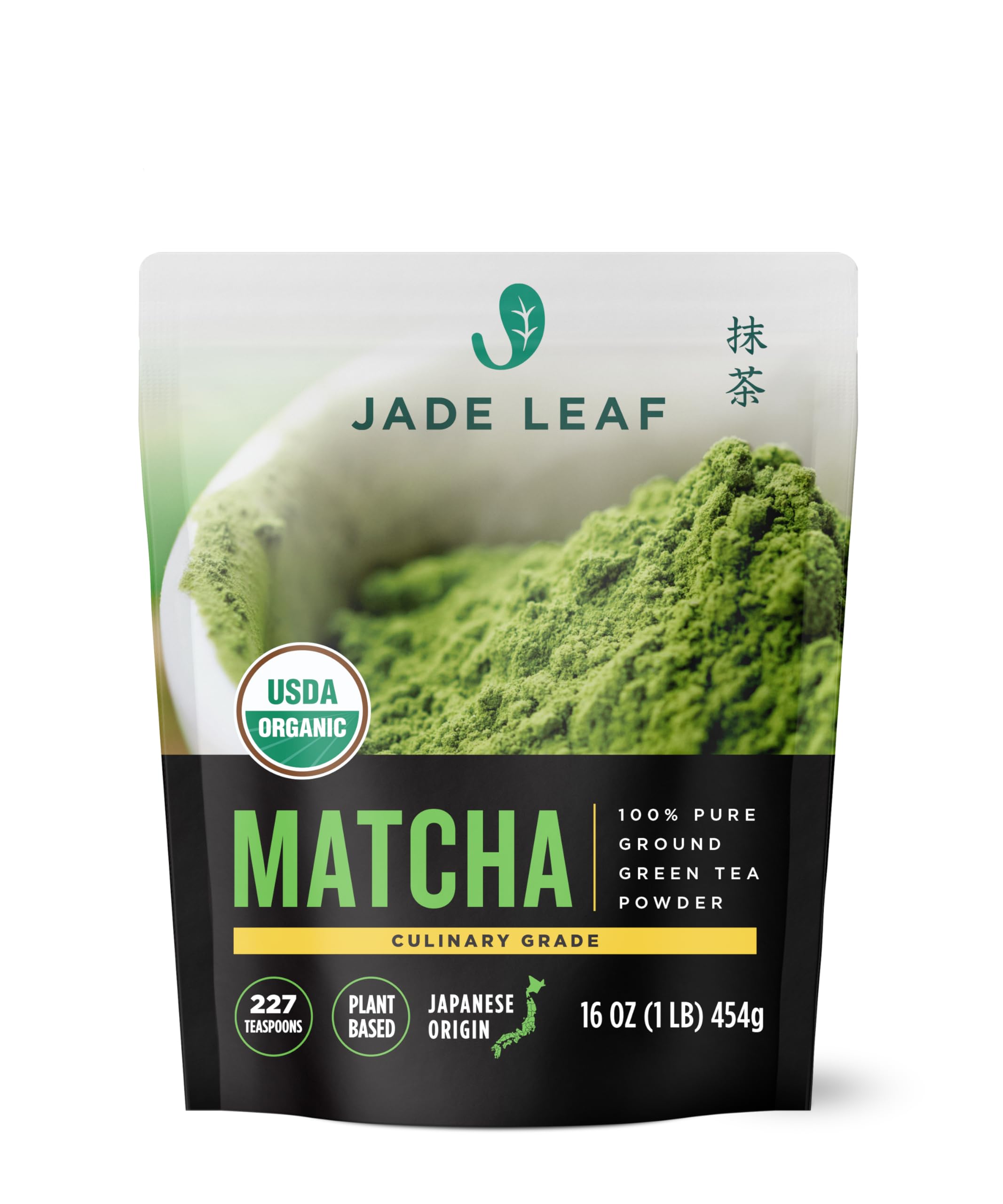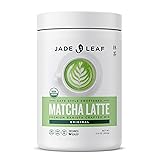All Categories








Jade Leaf Matcha Organic Culinary Grade Green Tea Powder - Farm Direct Second Harvest for Blending and Cooking - Authentic Japanese Origin (1 Pound Bulk Resealble Pouch)
Share Tweet
Get it between 2025-03-11 to 2025-03-18. Additional 3 business days for provincial shipping.
*Price and Stocks may change without prior notice
*Packaging of actual item may differ from photo shown
- Electrical items MAY be 110 volts.
- 7 Day Return Policy
- All products are genuine and original
- Cash On Delivery/Cash Upon Pickup Available








Jade Leaf Matcha Organic Culinary Grade Green Tea Features
-
Matcha contains a class of antioxidants called Catechins, particularly epigallocatechin gallate (EGCG), believed to help prevent free radicals in the body.
-
Matcha may offer a steadier and more sustainable source of energy compared to coffee, without the jitters or sudden crashes. This is due to the combination of naturally occurring L-theanine and caffeine in matcha powder, which has been shown to promote a calm and focused state while providing a consistent energy boost.
-
Matcha contains a class of antioxidants called Catechins, particularly epigallocatechin gallate (EGCG), believed to help prevent free radicals in the body.
-
Matcha may offer a steadier and more sustainable source of energy compared to coffee, without the jitters or sudden crashes. This is due to the combination of naturally occurring L-theanine and caffeine in matcha powder, which has been shown to promote a calm and focused state while providing a consistent energy boost.
About Jade Leaf Matcha Organic Culinary Grade Green Tea
FREQUENTLY ASKED QUESTIONS What grade of Matcha is this, and how do I use it? This is Culinary Grade Matcha, which is an affordable way to add a delicious, healthy boost to smoothies, lattes, baked goods, and other dishes. What's the difference between Culinary and Ceremonial grades? Simple: Culinary grade is meant for mixing into recipes as an ingredient, while Ceremonial grade is meant to be prepared traditionally as a tea (just mixed with hot water and whisked). Culinary grade is more affordable for day to day use, making it easy to fit the health benefits of Matcha into your diet. Does it contain caffeine? Yes, each half-teaspoon (1g) serving contains roughly 34mg of caffeine, about 1/3 a cup of coffee. However, Matcha also contains L-Theanine, which has a calming and leveling affect, so it doesn't make you feel jittery or wired like coffee does. What are other health benefits? - Boosts metabolism and helps burns calories - Calms and relaxes you from stress or anxiety - Rich in antioxidants (137x the amount in conventional green tea!) Are there other use cases for Culinary Matcha? Yes! Many of our customers make a healthy facial mask using our Culinary Grade, by mixing it with just a bit of water to form a paste. Where does this Matcha come from? Our Matcha is grown by Nagata Chaen, a single estate, organically focused family farm near the city of Uji in Kyoto, Japan. What if I don't like it? If you are not 100% satisfied with your purchase for any reason, just email us and we'll refund your order in full, no questions asked.




 (1)
(1)






























